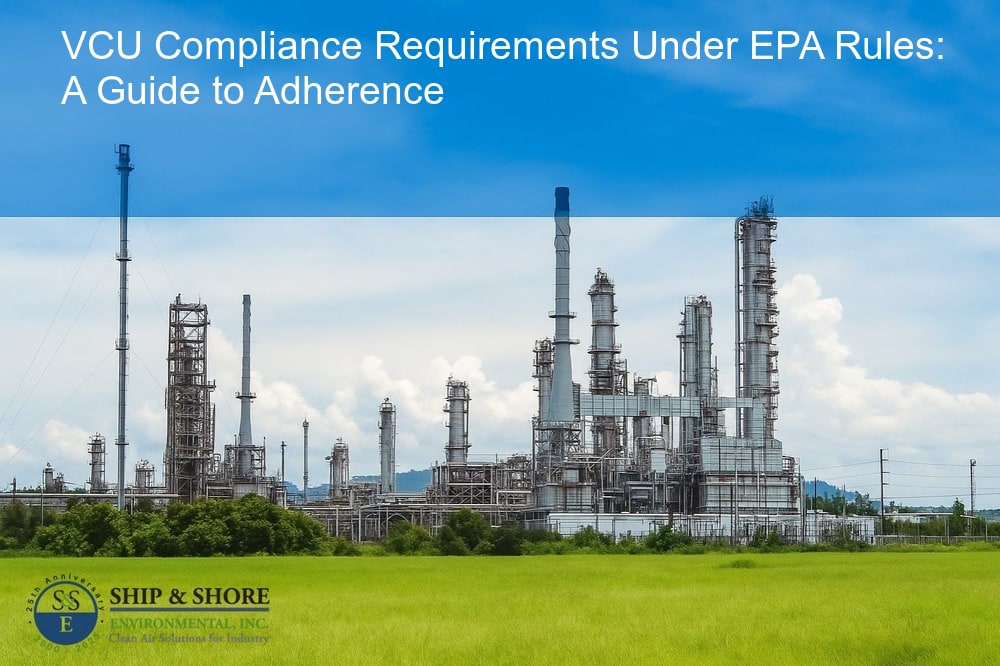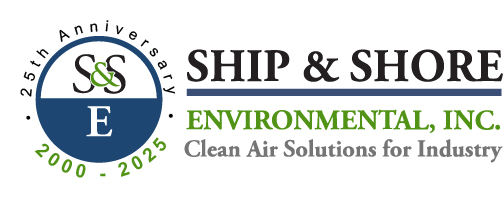
Navigating VCU Compliance Requirements Under EPA Rules
November 14, 2025 6:16 amUnderstanding the Basics of Vapor Combustion Units (VCUs)
In today’s industrial sector, adhering to VCU compliance requirements under EPA rules is imperative for maintaining not only legal standards but also sustainable environmental practices. Vapor Combustion Units, commonly referred to as VCUs, play a crucial role in capturing and safely combusting volatile organic compounds (VOCs) that emanate during various manufacturing processes. These units are engineered to convert hazardous vapors into less harmful emissions before release into the atmosphere, thus significantly reducing the potential for air pollution.
VCUs operate by utilizing a combustion chamber where high temperatures facilitate the breakdown of VOCs. This process ensures that fewer pollutants are emitted into the air, helping to meet the stringent guidelines set out by environmental regulatory bodies like the EPA. Understanding the basics of how these units function lays the groundwork for comprehending the broader implications of compliance and the technologies required to meet EPA standards.
The Importance of VCU Compliance in the Industrial Sector
Compliance with VCU regulations is not just a legal mandate; it is an ethical responsibility that impacts both community health and environmental sustainability. For industrial entities, ensuring that VCUs are in compliance with Environmental Protection Agency rules demonstrates a commitment to responsible stewardship. This compliance is particularly crucial as non-compliance can lead to severe penalties, operational shutdowns, and lasting reputational damage.
The benefits of adhering to VCU compliance requirements include enhanced operational efficiency, reduced risk of legal ramifications, and improved public image. Companies that prioritize compliance can take advantage of cleaner technologies and sustainable practices, thereby contributing positively to the environment and aligning more closely with evolving consumer expectations for corporate responsibility.
An Overview of EPA Rules Regarding Air Pollutants
The Environmental Protection Agency (EPA) enforces various rules to regulate air pollutants, designed to safeguard public health and the environment. These rules encompass a wide range of pollutants, including VOCs, particulate matter, and other hazardous air pollutants (HAPs). The regulations are regularly updated to incorporate the latest scientific findings and technological advancements in pollution control.
To comply with these regulations, industries must implement technologies and practices that effectively control emissions at the source. This includes the efficient operation of VCUs, which are mandated to meet specific performance standards as outlined in the Clean Air Act. Regular monitoring, maintenance, and reporting are also required to ensure continuous compliance. Understanding EPA rules and integrating them into operational practices is a continuous process that demands vigilance and commitment from all stakeholders involved.
Detailed Look at VCU Compliance Requirements Under EPA Rules
Ensuring compliance with Vapor Combustion Units (VCUs) is crucial for maintaining a clean and safe environment. The Environmental Protection Agency (EPA) has laid out comprehensive rules governing the operation and maintenance of VCUs to minimize the emission of volatile organic compounds (VOCs) and other hazardous air pollutants. Meeting these VCU compliance requirements under EPA rules necessitates a thorough understanding of the guidelines and diligent implementation of best practices.
Firstly, compliance involves regular monitoring and reporting of emissions. Facilities must install and maintain Continuous Emission Monitoring Systems (CEMS) to provide real-time data on VOC levels. This data should be meticulously logged and reported to the EPA to ensure transparency and accountability. Additionally, we must conduct regular performance tests to verify the efficiency of our VCUs. These tests should follow EPA-approved methods and be conducted at intervals specified by regulatory standards.
The Role of VCU in Reducing Volatile Organic Compounds
Volatile Organic Compounds (VOCs) are a significant concern because of their potential to harm both human health and the environment. VCUs play a pivotal role in reducing the emission of VOCs from industrial operations. When properly operated, VCUs can efficiently combust VOCs into less harmful compounds, primarily carbon dioxide and water vapor.
It’s important to note that achieving high combustion efficiency requires not only advanced VCU technology but also meticulous operation and maintenance practices. Regular inspections and maintenance tasks, such as cleaning burner nozzles and replacing worn components, are essential. Additionally, operator training programs should be implemented to ensure that staff can effectively manage VCU operations and promptly address any issues that arise.
Practical Steps to Ensure Compliance with EPA VCU Guidelines
Adhering to VCU compliance requirements under EPA rules involves several practical steps that can streamline the compliance process and enhance operational efficiency. We recommend the following:
- Develop and Implement a Compliance Plan: Create a detailed compliance plan that outlines all necessary actions and responsibilities. This plan should include a schedule for monitoring, reporting, and maintenance activities.
- Invest in Advanced Monitoring Systems: Utilize state-of-the-art CEMS and data logging systems to accurately track emissions and ensure real-time compliance with EPA standards.
- Conduct Regular Audits: Periodic internal audits can help identify areas of non-compliance and provide opportunities for corrective actions before regulatory inspections.
- Engage in Continuous Improvement: Regularly review and update operational procedures and staff training programs to stay abreast of evolving EPA regulations and technological advancements.
- Collaborate with Industry Experts: Working with environmental consulting firms, like Ship & Shore, can offer valuable insights and assistance in achieving and maintaining compliance.
In conclusion, compliance with EPA regulations for VCUs requires a proactive and comprehensive approach. By diligently following above guidelines, we can ensure adherence to VCU compliance requirements under EPA rules. This not only fosters a healthier environment but also promotes efficient and sustainable industrial operations.
Did you know? Vapor Combustion Units (VCUs) are crucial in preventing air pollution by destroying volatile organic compounds (VOCs) before they can escape into the atmosphere.
VCUs help industries meet EPA regulations, avoiding penalties and ensuring cleaner air for all.
Consequences of Non-Compliance and the Path to Better Operations
Failing to adhere to the vapor combustion compliance requirements under EPA rules can result in significant repercussions for industrial operators. Non-compliance can lead to hefty fines, legal actions, and reputational damage, which can affect business operations and future contracts. The stakes are high, but the solution is attainable by understanding and implementing the necessary measures to ensure our VCUs meet all regulatory standards.
Strategies for Achieving Efficient Operations and Compliance
Working with Ship & Shore, we aim to simplify the complex world of VCU compliance requirements under EPA rules. From system design to ongoing maintenance and compliance reporting, we provide comprehensive support to make sure our VCUs operate efficiently and within regulatory guidelines. By adopting best practices, we help industries reduce volatile organic compounds and other harmful emissions, fostering a safer environment for everyone.
Adapting to Evolving Regulations and Technological Advances
The regulatory landscape is continuously evolving, and staying ahead is crucial. Future-proofing our operations means remaining vigilant about changes in EPA regulations and proactively integrating new technologies into our vapor combustion units. Continuous improvement and innovation are key to not only meeting current standards but also anticipating future regulatory requirements. By investing in cutting-edge solutions, we position ourselves as leaders in environmental compliance and operational efficiency.
FAQ
What are the consequences of failing to comply with VCU regulations?
Non-compliance with VCU regulations can lead to severe penalties, which may include substantial fines, legal consequences, and damage to an organization’s reputation. Additionally, it can compromise the efficiency of industrial operations and result in the loss of business opportunities. Therefore, complying with regulations is essential for maintaining operational integrity and avoiding negative repercussions.
How can Ship & Shore Environmental, Inc. assist with VCU compliance?
Our approach is comprehensive, encompassing the design, installation, and maintenance of vapor combustion units, as well as assistance with compliance reporting. We offer tailored solutions to ensure that your operations not only meet the current compliance standards but also operate at peak efficiency, reducing emissions and potential environmental impact.
What steps can be taken to ensure compliance with environmental standards for VCUs?
Ensuring compliance involves regular monitoring of VCU operations, keeping abreast of the latest EPA regulations, and conducting periodic maintenance and audits. At Ship & Shore, we recommend developing a proactive compliance strategy that includes adopting new technologies and best practices to minimize emissions of volatile organic compounds and other pollutants.
How does investing in new VCU technologies benefit our operations?
Investing in the latest VCU technologies enhances operational efficiency and ensures compliance with environmental regulations. Moreover, these advancements can offer cost savings through improved energy efficiency and can provide a competitive edge by demonstrating a commitment to sustainable practices.
What is the significance of staying current with evolving EPA regulations?
Staying current with evolving EPA regulations is critical for maintaining compliance and avoiding potential fines or enforcement actions. Furthermore, by being proactive and adapting to changes, we can ensure that our operations remain sustainable over the long term, thus safeguarding our environment and public health.
Categorised in: Blog

